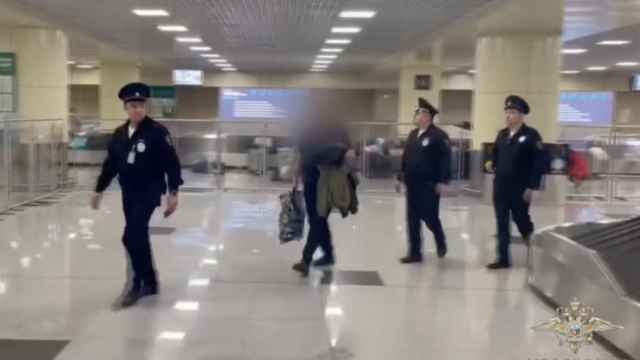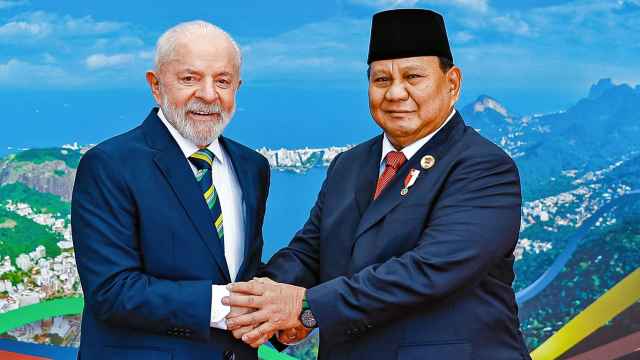The conflict over Domodedovo Airport that has been raging for the past month took a new turn when the Audit Chamber released a report stating it was “unacceptable” that the facility is owned by an offshore company.
In the 1990s, Domodedovo was a small, run-down airport. But East Line gained control of Domodedovo in 2000, and in seven years the company turned it into the best airport in Russia by reinvesting billions of dollars of its own profit back into improvements. Domodedovo’s radical transformation is a modern day Cinderella story of Russian business.
What’s more, only after Domodedovo’s owners pulled off their miraculous transformation of the airport and attracted a number of major airlines to the hub did other airports reluctantly begin remodeling their terminals and building new ones.
Now the government, which owns the two other Moscow airports, Vnukovo and Sheremetyevo, is trying to muscle in on Domodedovo’s successful business. The state will probably employ its standard weapon of combining threats from regulatory and law enforcement agencies with a lowball buyout offer in an effort to force Domodedovo’s owners to agree to sell for pennies on the dollar.
This is a worrisome development. The real problem caused by such state-orchestrated business seizures is not simply that the seller is underpaid. The main damage is the worsening moral climate it creates. After seeing the way the authorities are strong-arming East Line, fewer investors will risk putting their time and resources into resuscitating a failing business or pumping money into a new one.
If someone does dare to make an investment, he will try to protect it from a future takeover by concealing information about the ownership structure, hold back on investing enough money to bring the company to peak performance and stash the proceeds overseas.
There is also another, less obvious consequence in the bid to buy out Domodedovo, which plans to sell shares in an initial public offering in London, according to a regulatory statement released Wednesday. Let’s suppose that the holding company that owns Vnukovo and Sheremetyevo were to actually pay fair market value to East Line. A monopoly owning all three of Moscow’s largest airports would generate more income than the three earn now as competitors. So there is a substantial monetary incentive for them to unite.
But who would lose out in such a deal? The consumers. They would end up paying higher prices for low-quality service.
The picture is somewhat complicated by the fact that airports do not compete directly for end consumers, but for the airlines that sign lucrative contracts to base their operations there. But it is ultimately the people — those who fly and those who stay home because air travel costs too much — who bear the brunt of these decisions.
Of course, it would be regrettable if East Line were forced to sell below market price, but it would be even worse if the result is a mega-holding company controlling all three airports.
Battling monopolies is actually very straightforward, so much so that it doesn’t even require creating a separate agency. The only requirement is that state structures do not take part in creating monopolies. Any monopoly that arises through the operation of market forces — which sometimes happens following a technological breakthrough, for example — inevitably succumbs to pressure from competitors, especially if the government doesn’t protect it artificially.
But it would be much better if monopolies weren’t created in the first place.
Konstantin Sonin is a professor at the New Economic School in Moscow and a columnist for Vedomosti.
A Message from The Moscow Times:
Dear readers,
We are facing unprecedented challenges. Russia's Prosecutor General's Office has designated The Moscow Times as an "undesirable" organization, criminalizing our work and putting our staff at risk of prosecution. This follows our earlier unjust labeling as a "foreign agent."
These actions are direct attempts to silence independent journalism in Russia. The authorities claim our work "discredits the decisions of the Russian leadership." We see things differently: we strive to provide accurate, unbiased reporting on Russia.
We, the journalists of The Moscow Times, refuse to be silenced. But to continue our work, we need your help.
Your support, no matter how small, makes a world of difference. If you can, please support us monthly starting from just $2. It's quick to set up, and every contribution makes a significant impact.
By supporting The Moscow Times, you're defending open, independent journalism in the face of repression. Thank you for standing with us.
Remind me later.





